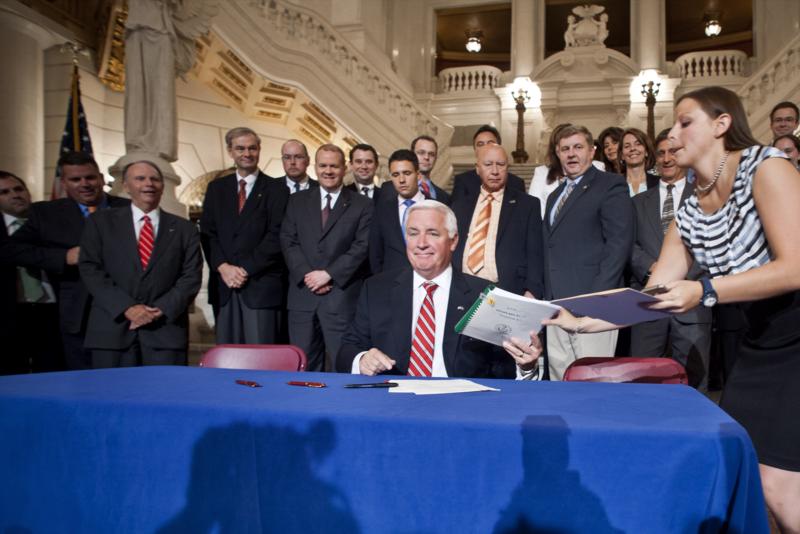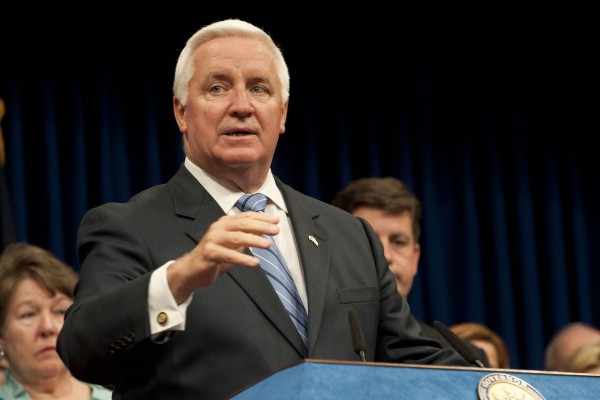Gov. Ready to Focus on Pension Reform This Fall
Fresh off his second budget cycle, Governor Tom Corbett wants to address Pennsylvania’s rising pension costs this fall. While the Republican majority did not invite Democrats to the table for budget negotiations this spring, Corbett says public pensions are a different matter altogether. “This is not a partisan issue… so we’ll probably be reaching out to them,” he explained during a recent q&a with the media.
The governor says it was interesting to see many Democrats supporting some aspects of the budget package – including education reforms and an ethane cracker tax credit.
The state’s pension obligation will increase another $500 – $600-million next year alone, and there’s no relief in sight until 2024. Without action, there will be less and less funding available for other state programs. “It’s not just a problem that we have at the state. Municipalities & school districts across the state have that problem, and there are problems like that across the nation,” Corbett says.
Numerous bills have been introduced in the House. Senate Republicans plan to act on a plan to move all new hires to a 401K-style pension plan where the employee bears the risk, not the employer (in this case the taxpayer).
But, Corbett knows there’s no silver bullet. “If there was, somebody would have found it already, we’d all be doing it.” He anticipates a thoughtful, cooperative discussion this fall.














